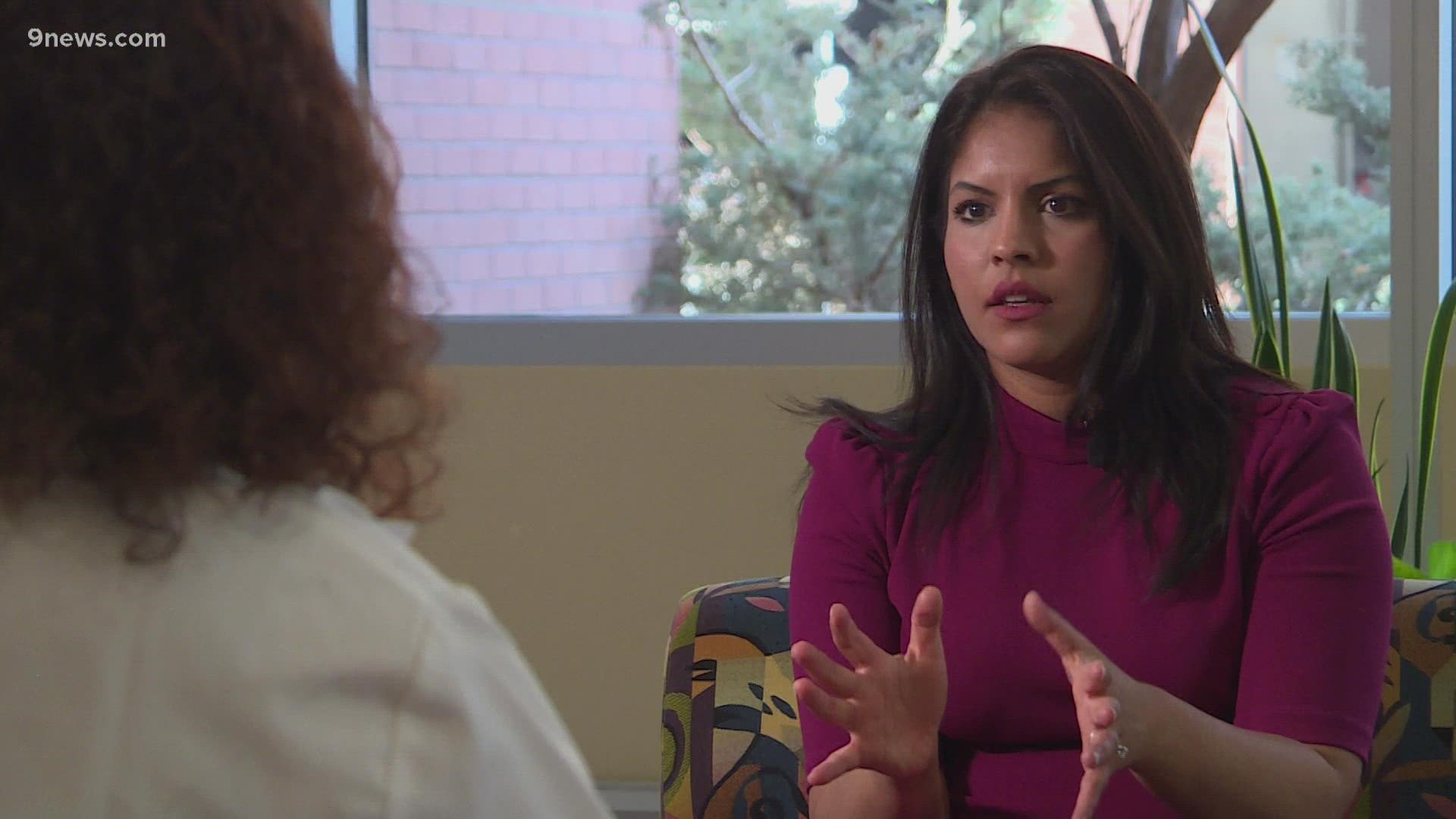DENVER — We've been here before. There's a sigh of relief knowing COVID is letting up enough so that people can start living their lives "normally" again. This time around, health leaders are starting to treat COVID as endemic, which has been a major goal. But why should we trust the data this time when the virus has surged back before?
Here's part of out conversation with infectious disease specialist Dr. Michelle Barron with UCHealth.
How comfortable are you saying the pandemic is turning endemic?
Barron said she is comfortable with this after looking at plummeting transmission rates, as well as decreasing hospitalizations and positivity rates.
She also pointed to the number of people with immunity after getting COVID.
While it may feel like déjà vu, since we've seen cases and hospitalizations drop before followed by COVID returning with vengeance, Barron said there are different factors ton consider this time.
"There is no doubt we could potentially have another surge come back, and obviously, that's something we are thinking about and thinking about how we need to prepare for that," she said. "The big difference is level of immunity. If you look back a year ago, we had rolled out vaccines, but we were still obviously very active in that process. Boosters were still not even a thing yet, if you think again about that, in terms of level of protection we thought we would need. That's one of the big differences, is the level of immunity that we managed to get, either through vaccination or infection through Omicron."
Can we start talking about COVID in the context of other viruses?
At the beginning of the pandemic, talking about COVID and the flu in the same conversation was a no-go. Health leaders were afraid people would not take it seriously enough. But now, Barron said some things have changed.
"Big difference is what we know now," said Barron. "We think most people are fully aware of COVID and what it can do. I think that a comparison with the flu is not as bad now, although the flu still causes issues. I think, again, it's our comfort level with it. We know the flu comes. It's not novel to us. We know what to expect from it. So, I think that's the big difference."
"We know so much more. I mean, it's amazing to think of what we learned in the last two years. It's exponential how quickly this went. For perspective, when AIDS -- HIV was identified as a virus causing AIDS. it took two years before we had a test to tell someone had it without active signs and symptoms. If you think with COVID, we found out what it was within a couple of weeks of popping up and causing issues. And tests that were ready and available within a month, probably came out sooner than that -- widely available. Then a vaccine. It was lightening speed."
While the flu can be expected seasonally, health experts say they don't know that yet about COVID.
"It's definitely declined, when you look at mortality," Barron said. "You have to put it in context. Lots of things that can cause someone to die. Was it because of COVID, or a combination of comorbidities? We see this with the flu, as well."
"At the end of the day, we need to recognize people will become infected with this," she added. "The big thing we are trying to prevent is someone gets so sick that they end up in the hospital or die from this. I think that's a little different than what we were hoping for two years ago."
Barron reminded people getting vaccinated for COVID decreases the chances of falling so sick that you end up with serious illness.
What about globally?
Barron said while the U.S. is in a good spot, that's not the case for every country. Regardless of what comes next for COVID, health professionals have knowledge that can put us ahead of the game.
"I wouldn't say starting over. I don't think we are starting from scratch. We may have to institute some of the measures again," she said. "Hopefully individualized enough. People should know that."

